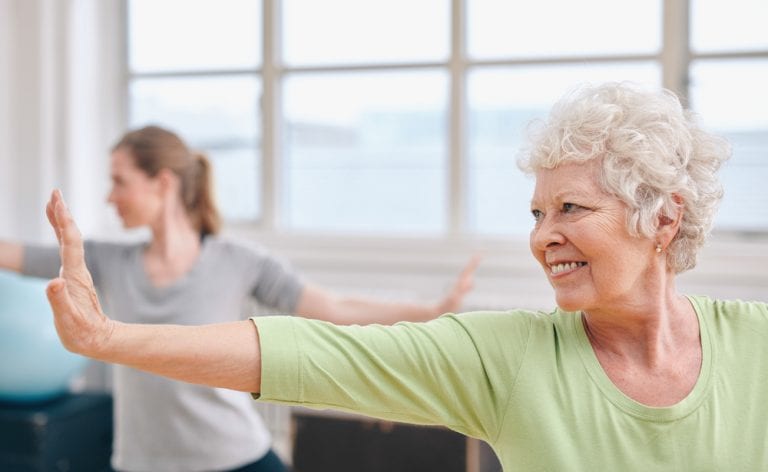New research has suggested that regular aerobic exercise could improve the memory and thinking skills of people living with dementia. The results of a randomised controlled trial were recently published in the journal Neurology and showed a small but significant improvement in cognitive functioning amongst participants.
The trial involved 70 people with vascular cognitive impairment divided into two separate groups. One group undertook a programme of aerobic exercise, whilst the other was given advice on a healthy diet but no information or advice relating to exercise. The exercise programme lasted 6 months and took the part of three 1-hour sessions of light aerobic exercise each week. As well as enjoying an improvement in memory, those taking part in the exercise group also benefited from a reduction in blood pressure.
Interestingly, the effects of exercise on memory were no longer noticeable 6 months after the programme had finished, suggesting that continuing with any programme of exercise is important if the benefits are to be sustained.
With the news that exercise could possibly offer mental as well as physical benefits to people with dementia, you should read on to find out how you can offer suitable exercise programmes to the people in your care.
Exercise groups including seated exercise classes, or ‘chairobics’ and falls prevention groups have become increasingly popular in care settings as the physical benefits of exercise to older people have been recognised. However, with the possibility that exercise could benefit cognitive functioning, there are more reasons than ever to offer regular planned exercise.
4 Ways of Providing Exercise to the People in Your Care
- Oomph! classes: Oomph! is an award-winning social enterprise dedicated to enhancing the wellbeing of older people and works with both residential and community care organisations. It provide professional training and support to create Exercise Leaders able to deliver safe and beneficial classes and also provides ongoing support to help run exercise sessions every day.
- Walking groups: One of the easiest ways to introduce activity in a care setting is to introduce a walking group for more mobile residents. Beginning with short walks, the group can take on longer and more challenging walks as fitness improves and as abilities allow. Walking groups are also an excellent way of combining social activity with exercise.
- EXTEND classes: EXTEND specialises in providing exercise teachers specially trained in providing exercise programmes to older people. Offering both group and individual sessions, information about EXTEND can be found here.
- Swimming: Although few care homes have access to their own pool, many local swimming pools offer ‘quiet’ sessions for older people or those with limited mobility, often providing hoisting equipment at poolside. The buoyancy provided by water can be helpful in supporting people who usually lack confidence to mobilise and can offer a safe and enjoyable means of promoting exercise.

